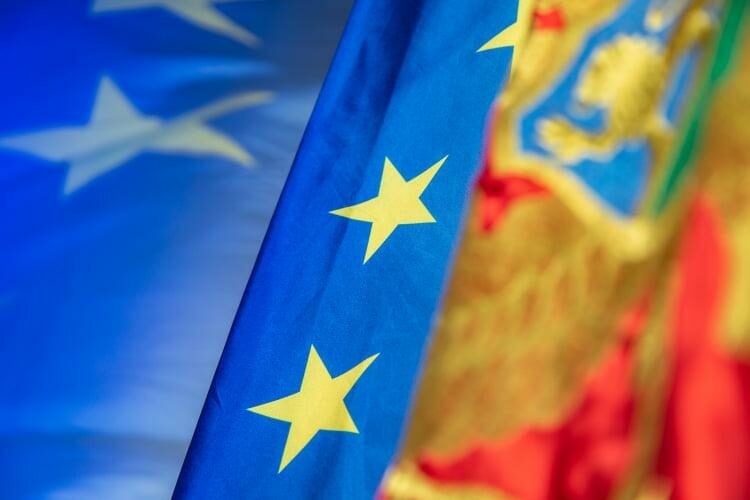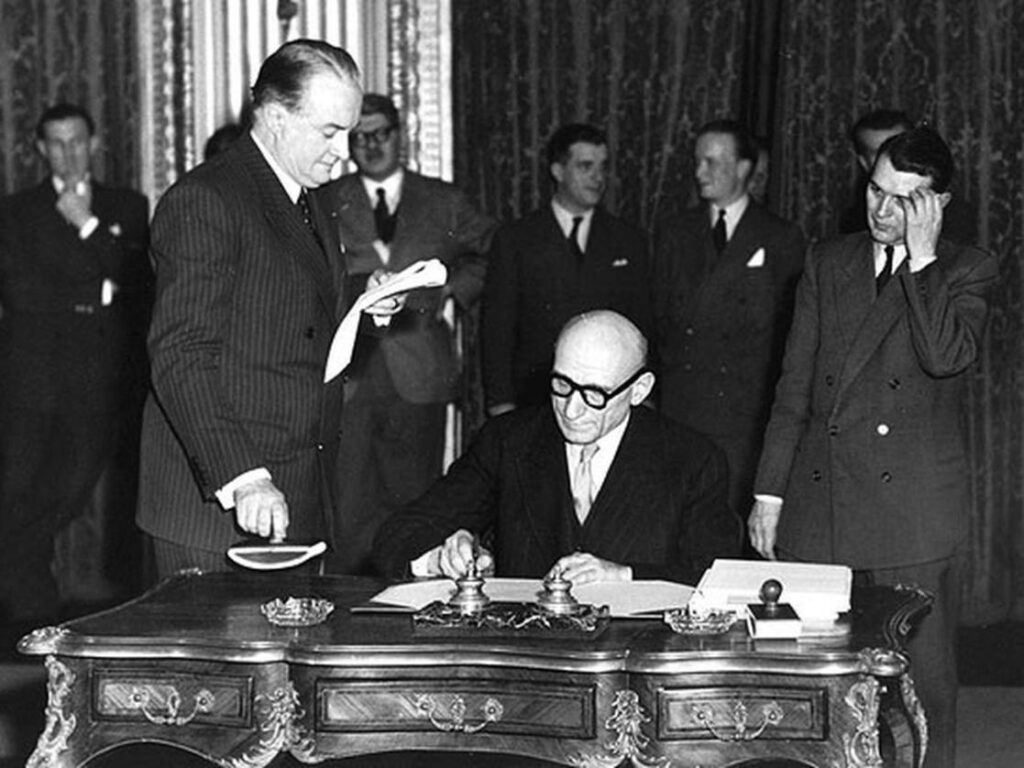The origins of the commemorative day date back to 1950, when Europe was still healing from the devastating aftermath of World War II.
Every 9 May, Europeans celebrate Europe Day, a commemorative occasion that honours the inception of the continent’s political and economic integration, and the enduring peace achieved as a result of the decades-long collective effort.
The celebration traces back to 1950, when Robert Schuman, then-French minister of foreign affairs, delivered his landmark declaration proposing that France and Germany – two nations with a long and bloody history – join their coal and steel production.
In doing so, Schuman intended to accelerate the modernisation of both countries after the economic devastation and human carnage caused by World War II while removing incentives that could have fostered unfair competition.
By turning such critical industries so inextricably intertwined, the French minister had a higher goal: to render war impractical and futile.
“The solidarity in production thus established will make it plain that any war between France and Germany becomes not merely unthinkable, but materially impossible,” Schuman said while reading his declaration in the Salon de l’Horloge at the Quai d’Orsay in Paris on 9 May 1950.
Cleverly, Schuman left the door open for other countries to come on board and bring about a genuinely united Europe – an ambition pursued during the inter-war period that collapsed under the weight of national interests.
Schuman’s pitch proved successful: West German Chancellor Konrad Adenauer said yes almost instantaneously.
Slowly, a united Europe came into being
A year later, on 18 April 1951, representatives from France, Germany, Italy, Belgium, the Netherlands and Luxembourg signed the Treaty of Paris and established the European Coal and Steel Community (ECSC), a pioneering organisation based on the principle of supranationalism.
Under the ECSC, nation-states accepted the transfer of their jealously guarded sovereign competences towards a series of newly-formed European institutions: an independent High Authority, a Common Assembly of national parliamentarians, a Special Council of national ministers and a Court of Justice.
Schuman’s close aide, Jean Monnet, who is now considered the mastermind behind the landmark declaration, was named the first president of the High Authority.
The economic benefits of the ECSC, like the custom-free market that stimulated the trade of coal and steel, convinced member states to go further than the early blueprint and bring more sectors and policy areas under the supranational mandate.
The ECSC progressively evolved, first into the European Economic Community and, later, the European Union.
The original four institutions eventually turned into the European Commission, the European Parliament, the EU Council and the European Court of Justice that we know today.
Robert Schuman (pictured in the centre) is considered one the founding fathers of the European Union.
The steady transformation of the political project, the likes of which humankind had never seen, cemented the status of the Schuman Declaration as the true genesis of European integration.
“Europe will not be made all at once, or according to a single plan. It will be built through concrete achievements which first create a de facto solidarity,” the French statesman said in his speech.
Meeting in Milan in 1985, heads of state and government decided to officially name 9 May Europe Day to celebrate peace and unity in the continent.
The occasion became one of the main symbols of the European Union, together with the twelve-starred flag, the slogan “In varietate concordia” – “United in diversity” – and the anthem, based on Beethoven’s “Ode to Joy”.
The 2004 treaty establishing a Constitution for Europe was meant to consolidate these symbols as the bloc’s official emblems but the provision was dropped after the ratification process failed.
Interestingly, only two countries, Luxembourg – where Schuman was born in 1886 – and Kosovo – a non-EU state with long-held EU aspirations – have established Europe Day as a national holiday. In Romania, it coincides with independence day, while Croatia and Lithuania have legally recognised the day but without making it a public holiday.
The other member states celebrate Europe Day in a commemorative manner, by hoisting flags and organising a variety of events. In Brussels, the EU institutions hold an open-doors day and its employees are given a day off work – unless Parliament is in session.
Article source: www.euronews.com


